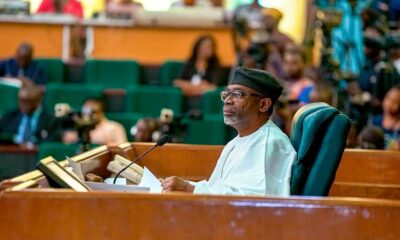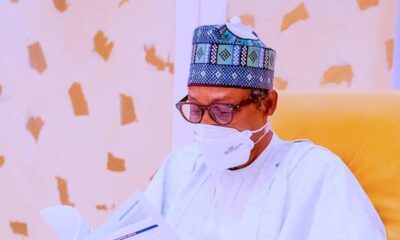Education
Senate moves to approve Fedpoly for Delta

The Senate Chamber
Senate, on Thursday, passed for second reading, a Bill for an Act to establish the Federal Polytechnic, Orogun in Delta State.
The bill, being sponsored by the Deputy President of the Senate, Senator Ovie Omo-Agege (APC, Delta Central), seeks to provide full time courses in technology, applied sciences and management.
It also seeks to provide courses in other fields of studies and to make provision for the general administration of the institution and other related matters.
In his lead debate, Senator Omo-Agege pointed out that the institution, when established, would bring education closer to the people in the area.
He noted that a lot of Nigerians from the area seeking admission earnestly desire to have this institution established to address their education need outside the already existing Petroleum Training Institutes.
The lawmaker noted that when established, it would create more admission opportunities for youths, lamenting that those seeking admission to tertiary institutions were denied admission based on quota and catchment areas arrangement.
Contributing, Senators George Sekibo, Sandy Onor, Abba Moro and Philip Aduda, and Ibikunle Amosun, all supported the bill, and urged other senators to lend their full support to the passage of the bill.
In his remarks, President of the Senate, Dr. Ahmad Lawan, said that the establishment of the proposed polytechnic had become necessary, to produce graduates that would be suitable for the developmental requirements of the 21st century.
He argued that any country that would make meaningful progress developmentally in the context of the contemporary world, would not depend on the education curriculum of the 20th century.
The Senate president also noted that the major developed countries of the world did not depend on crude oil or other natural resources but rely more on human resources borne out of functions education.
Lawan posited that in countries with functional education, well trained people could function well as they have the capacity to take up jobs and excel, and that such nations even export their human resources to other countries.
“No country that wants to make progress in the 21st century will rely on 20th century curriculum and expect to meet up with the pace of development in the contemporary world. So, we have to adopt strategies that will enable us meet up with the required developments in the 21st century.
“The major developed countries are not relying on crude oil or indeed any natural resources. Their people are given very functional and relevant education. And that is why they can function, they can take any job, they can perform well, and in fact they export their people’s knowledge and capacities, and we need to do the same.
“Our system has to be functional. What this bill seeks to do is to create that critical mass of people who will be trained in this very vital sector of our economy.
“Therefore, we should extend this beyond federal polytechnic that will be looking at the direction of petroleum alone; the ICT and so many other things are today providing so much resources to those countries that are able to get their people trained.
“So, we just have to do the same. And no amount of investment will be too much because some economies in the world depend on the ability of the people they have trained.”
The bill was later referred to the Senate Committee on Tertiary Institutions and TETFUND for further legislative action and mandated to report back in four weeks.
Contact: info@royalnews.com.ng











